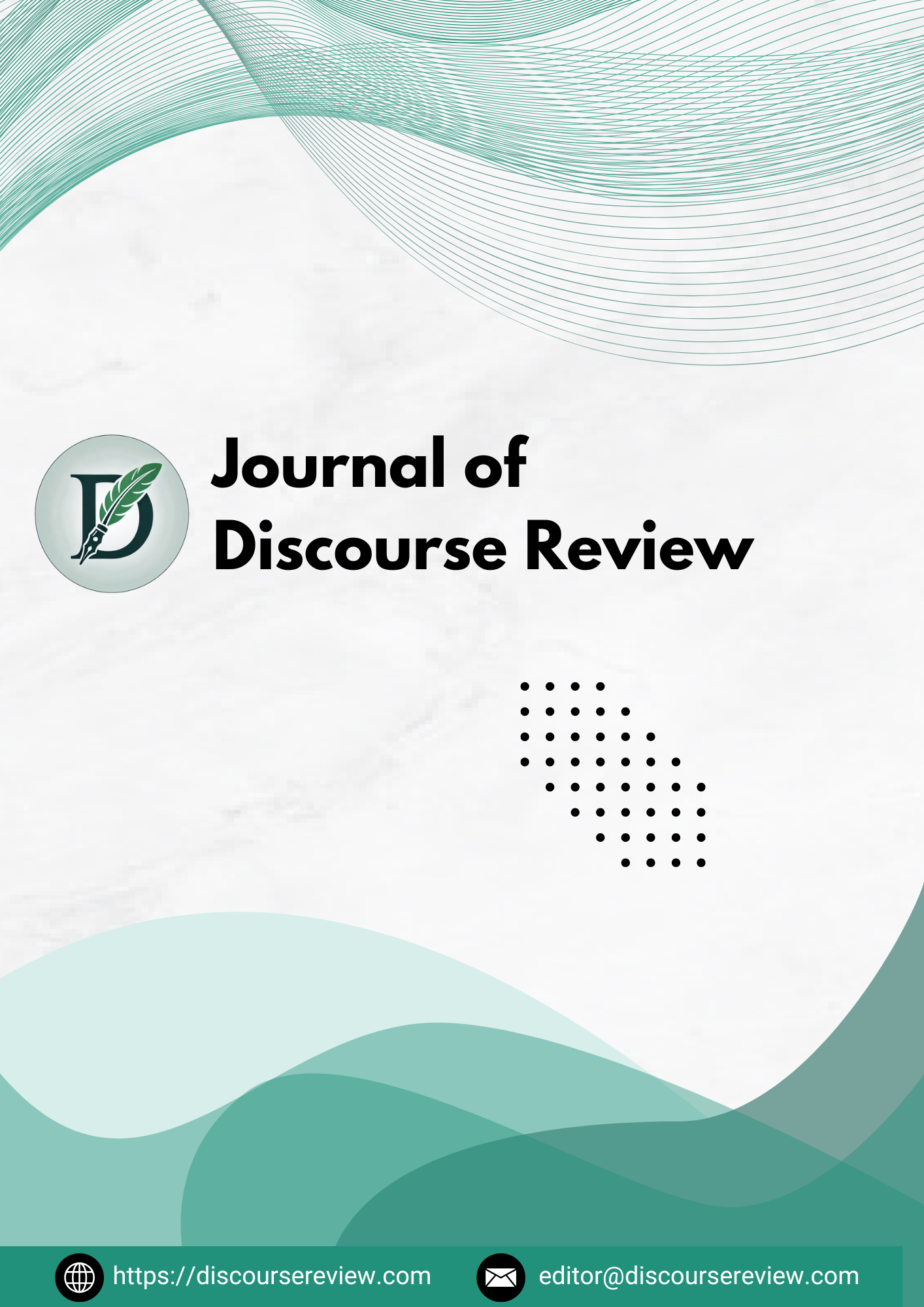
Journal of Discourse Review
Open Access Humanitarian Scholarship
7 days
Time to first decision

Open Access Humanitarian Scholarship
Time to first decision
The Editor-in-Chief/Associate Editors hold/s the final responsibility for deciding which submitted manuscripts will be published in the Journal of Discourse Review. This decision is grounded in the reviewers’ recommendations and guided by the editorial board’s policies and relevant legal and ethical considerations, including those related to copyright and plagiarism.
Commitment to Equity
Submissions are evaluated solely based on their scholarly merit. The journal strongly upholds the principle that manuscripts must be reviewed without regard to the authors’ race, gender, sexual orientation, religious beliefs, ethnic background, citizenship, or political affiliations.
Confidentiality
All information regarding a submitted manuscript is treated as confidential. Access is restricted to the corresponding author, assigned reviewers, editorial advisors, and the publisher as necessary. Confidentiality must be preserved at all stages of the editorial process.
Conflict of Interest
Editors must refrain from using any unpublished material disclosed in a submitted manuscript for their own research without the express written consent of the author. Any potential conflicts of interest must be disclosed promptly.
Editorial Contribution
Peer reviewers play an essential role in the editorial process by offering impartial and constructive feedback. The Journal of Discourse Review follows a double-blind review process to ensure objectivity and fairness. Reviewers’ identities remain confidential and are known only to the Chief Editor/Editor.
Timeliness
Reviewers are expected to complete reviews promptly. If a reviewer is unable to complete the review within the agreed timeframe or feels unqualified, they should notify the editorial team immediately.
Objectivity and Respect
Reviews should focus on the intellectual content of the work. Criticisms must be objective, clear, and supported by reasoned arguments. Personal remarks or unfounded judgments are not acceptable.
Confidentiality
Manuscripts under review are confidential documents. Reviewers must not share or discuss them with others unless explicitly authorized by the editor.
Acknowledgement of Sources
Reviewers should identify uncited work relevant to the manuscript. If any section of the submission appears to duplicate previously published work, this must be brought to the attention of the editorial team.
Conflicts of Interest
Reviewers should decline to review manuscripts where there is any potential conflict of interest stemming from personal, professional, or institutional affiliations with the authors.
Integrity of Reporting
Authors must present their research honestly and transparently, providing a thorough account of the work performed and its significance. All data should be accurately presented and sufficiently detailed to allow replication and verification.
Originality and Plagiarism
Authors must ensure that their submissions are original, unpublished, and not under consideration elsewhere. Proper citation must be provided for all referenced or quoted material. Plagiarism in any form is unacceptable and will result in rejection.
Multiple Submissions
Simultaneous submission of the same manuscript to multiple journals is unethical. Authors should avoid submitting work that substantially overlaps with previously published material.
Data Access
Authors should be prepared to provide raw data related to their manuscript for editorial review and, where feasible, for public access, ensuring transparency and reproducibility.
Acknowledging Others’ Work
Proper credit must be given to prior scholarship that has influenced the research. Information obtained through private communications must not be used without written permission from the source.
Disclosure of Conflicts of Interest
All authors must disclose any financial or other significant conflicts of interest that may influence the interpretation of their research. Funding sources should be clearly acknowledged.